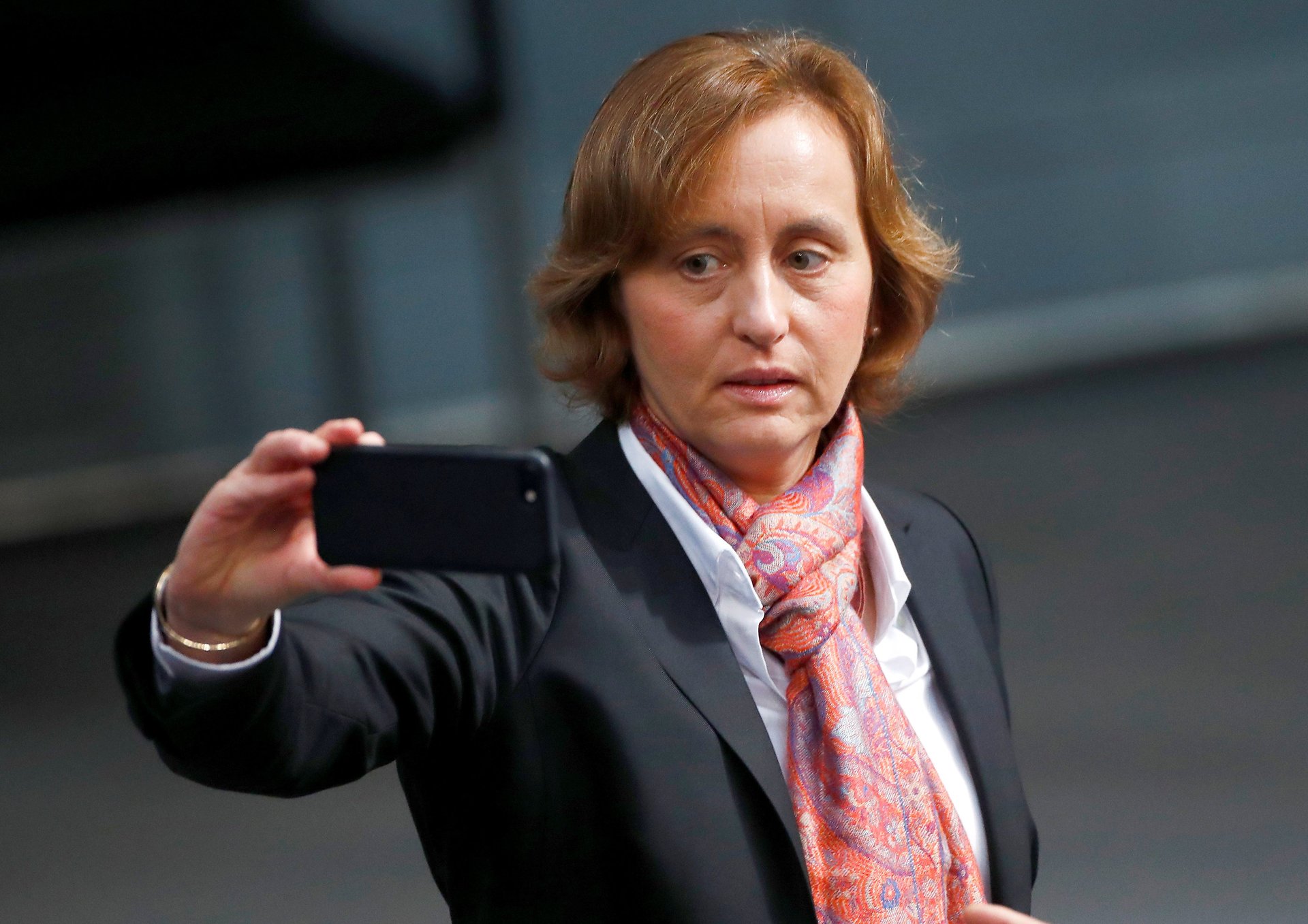A far-right politician was the first to fall foul of Germany’s online hate-speech laws
Germany began enforcing its strict new rules on how social media companies must combat hate speech as of Jan 1. From now on, companies that repeatedly fail to remove offensive posts in a timely manner could face a maximum fine of €50 million ($60 million).


Germany began enforcing its strict new rules on how social media companies must combat hate speech as of Jan 1. From now on, companies that repeatedly fail to remove offensive posts in a timely manner could face a maximum fine of €50 million ($60 million).
Twitter and Facebook were quick to react under the new laws, freezing the account of a prominent leader of the anti-immigrant Alternative for Germany party after she posted insulting remarks about Muslim men on New Year’s Eve.
Beatrix von Storch, the deputy leader of the AFD, was outraged that the police in North Rhine-Westphalia (NRW) posted a New Year’s tweet in Arabic.
“What the hell is wrong with this country? Why is the official page of police in NRW tweeting in Arabic? Are they seeking to appease the barbaric, Muslim, rapist hordes of men?” von Storch posted on Twitter and Facebook.
She appeared to be referring to the New Year’s celebrations in Cologne two years ago, when hundreds of women filed complaints of assault by men they say were of Middle Eastern or North African origin. Von Storch’s Twitter account was restored after 12 hours, with the tweet removed. Facebook likewise removed her post.
Police in the state have filed an “incitement to hate” complaint against von Storch, according to AFP. A police spokesperson said it was customary to send tweets out in a number of languages for big events—they also sent the New Year’s greeting in English and French. Prosecutors will now decide whether there are grounds for a criminal investigation.
The AfD’s parliamentary leader Alice Weidel took to Facebook and Twitter to defend von Storch, referring to “migrant mobs,” and slamming Germany’s new social-media hate speech laws as “censorship.” The right-wing party entered the German parliament for the first time after the September elections.
The new social media law has been broadly criticized since it was passed last summer. While the government hopes it will force powerful social media companies to tackle hate speech on their platforms faster and more thoroughly, many journalists, lawyers and free-speech advocates fear that the prospect of eye-watering fines will spook them into deleting perfectly legal comments, and imposing excessive censorship. They have pointed out that the German government is legally responsible for punishing hate speech under its civil and criminal laws, and should not be handing over that responsibility to Facebook and other platforms.